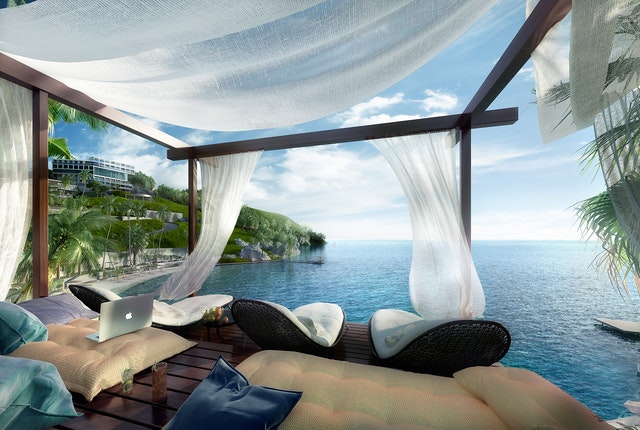We talk of a need for authentic travel more and more these days, but with bursting pipes and dark days ahead, is that what we want?
Authenticity and Travel: What We Want
We aren’t used to snow in the UK. So the idea that we might be sitting near the top of the Winter Olympics medal tables, competing in cross-country skiing with the Norwegians and Swiss, seems an anathema. An aversion also appears that the authorities, both local and national, might be adequately prepared. Yet while not wanting to get too much into those issues, the slush, flooding, and dampness bring forth other visions not too far removed from images of the Russian spring in some Turgenev novels. The long winter without Christmas is before us; we dream of warmer climes, and the language of travel fills our minds.
The language of travel
On BBC Radio 4’s Word of Mouth, the Independent’s travel critic Simon Calder waxed lyrically, if not a tad sardonically, at the lexical fulminations of the holiday industry promoting itself through seemingly banal and empty adjectives, of which sunny, relaxed, cultural, and diverse are but a few. Such epithets appear helpful whether you’re promoting the nether regions of the United States, Serbia, Brazil, or Iceland, for as Calder notes, we, the paying tourist, seem, in the central, happy to play along.
While there are notorious examples of holiday experiences that sit mightily near to the base and far end of Richard Butler’s classic resort model, whereby the height of any pleasurable experience to be had at any given resort, for example, Coney Island or Blackpool has long given over to what Tim Edensor saw as holidaying in the ‘monotone enclave,’ there are still the Cancun’s and French Rivieras to fall back on.
Holidays are central to our aspirations.
As is entirely understandable in our hectic lives and relatively monotonous working conditions, most of us want to lie back and unwind either with or without the children in tow. As long as the airports, connections, and tour buses are efficient, synchronized, and staffed by friendly and helpful people, our holidays, often the simpler, the better, remain central to our yearly dreams and aspirations. Indeed, it is interesting when reading or hearing accounts of daily life behind the old Iron Curtain to note that of all the daily restrictions that bothered people, the restriction on foreign travel was one of the most annoying.
The historical and cultural playgrounds of ‘the old country, in Italy, for example, might not seem at first sight a caricature of the mass holiday destination as parodied on ITV’s Benidorm. Yet beyond the inferred sophistication of the former over the latter, there is no reason to suppose that concrete apartments and English pubs are any less ‘authentic’ in the south of Spain than a tour through the film set of our collective imaginings, a la Roman Holiday, La Dolce Vita or The Tourist.
Authenticity in travel
Yet again, the notion of authenticity, which is so debated within tourism studies, is highly subjective, that getting and experiencing the ‘real’ experience of life in any chosen destination. Dean MacCannell coined the phrase back and front tourist region, and you can’t get much more about it than taking a trip to see the Auschwitz concentration camp or the Chernobyl nuclear reactor. Visits to such places are littered with moral questions, like: are the masses of tourists cheapening the memory or significance of these sites by merely putting such an excursion into their itineraries? Simon Calder again thinks not. Such processes, he suggests, are just natural curiosities and part of the human make-up, just like some other activities that are not necessarily easy to explain, especially to your insurance company, like bungee jumping or parachute jumping.
But are any of these examples’ authentic’? Perhaps, but only in the same way that the Queen Victoria Pub in EastEnders is representative of a few other pubs in the country where everyone knows each other’s business; most pubs aren’t like Queen Vic. Most people don’t live in Assisi, Geneva, New York, or Dubai. The reality for most people isn’t the reality they go looking for when they want the truth of the other.
The real heartbeat of the United States, the middle and most representative of people, culture, and class, is somewhere in the Buckeye state of Ohio. Yet it seems unlikely that the British tourist would give up Manhattan or Florida for such a destination. Likewise, it would seem unlikely that your average American tourist would exchange Windsor, Bath, and Oxford for Swindon, Stoke, and Birmingham. Authentic isn’t really what we want, in the bleak mid-winter or not.




